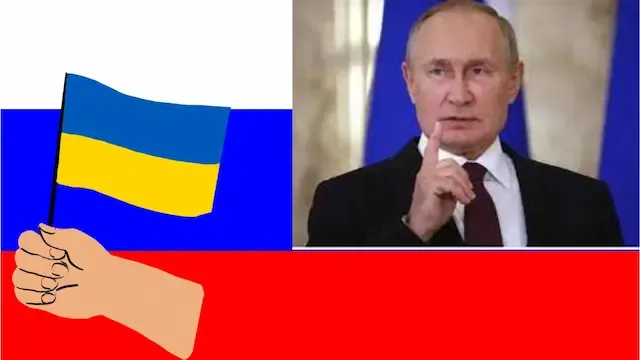When does the Russian attack begin in Ukraine?
Everyone in the West speaks without exception about Russia's upcoming attack in Ukraine over the next 10 days.
This may be the case, but there are a number of issues that make me doubt that this attack will happen, or that at least it will be significant.
After the imminent takeover of Artyumovsk (Ukrainian-Bakhmut name)
and possibly Seversk
relatively large and small areas of its population are likely to be liberated.
However
- the rapid seizure of large and fortified cities without their destruction
- and heavy losses on the Russian side is hardly possible.
- At the same time, the Kremlin's great sacrifices are unacceptable
both politically and militarily.
Russian forces continued to fight against a far more numerous enemy
and cordoning off and attacking any large city would require a troop focus that could leave other sectors of the front vulnerable to a Ukrainian counter-attack, as happened in the Kharkov region last September.
The mobilization of 300 thousand reserve troops by Russia provided the opportunity for safe control of the front line, but it is not enough to free all or even half of Ukraine.
Russian troops can use their superior firepower to
- grind Ukrainian troops slowly, with limited local attacks
- but not for larger operations than the capture of Slovyansk
- and Kramatorsk. I expect that the most appropriate scenario will be
the encirclement of Zaporoge
to which the Russian army will have to stay for a long tim
and this situation will be repeated near every major city, a war that can last for many years, that is to say, raising the pace of war with conventional weapons by drawing on the Russian forces' current numbers will increase their losses and not bring much closer to victory.
But the question still arises:
what awaits us if the attack succeeds?
What if Russian troops, for example, arrive in Kiev or Odessa?
Based on the rapidly increasing involvement of the United States of America
Britain and other Western nations in the war, it is likely in such a scenario that we would expect a direct clash between Russia and NATO or with a number of its members individually.
Indeed, the possibility of this conflict becoming a nuclear conflict too quickly will become too great.
So what is Russia's strategy?
They resemble Russia with bear
but I prefer to compare Putin with a snake neck wrapping around the prey neck and slowly squeezing the rings, so as to prevent the victim from breathing until she eventually suffocates.
For economic reasons
Russia has been unable to withstand a comprehensive confrontation
with the West for decades. for military reasons, it cannot afford to prolong the conflict for more than two or three years, after which it will have to make a decision either to surrender or to escalate nuclear.
However, Ukraine, and thus the West
is able to sustain the continuation of active hostilities with Russia for a much shorter period, perhaps one year or less.
According to Western leaders
Ukraine has already received $120 billion in assistance.
That is ;
the resources consumed by Ukraine are very large
- and it itself has already died economically
- and as Russian strikes on power facilities continue
- it will return to the Middle Ages in a few months.
The West needs to be urgently prepared for war with China.
Despite the euphoria of the Western press, the Western economic situation continues to deteriorate, and there is a high likelihood of an economic collapse during the US presidential election campaign.
The choice between the two resolutions of
defeat or escalation already exists on the West's agenda.
These days
- Zelensky is on a theatre tour of Europe
- while the Ukrainian representative's European leaders
- are showering with souvenirs and worthless symbols
and are doing their utmost to motivate him to
continue the suicide war against Russia without having to spend much money.
What I would rather believe is that Ukraine
will try to carry out a large-scale counter-attack against Russia.
For Ukraine, this attempt could be suicidal, and its failure, frustration and retreat could lead to the collapse of the front and the fall of the regime (hence the subsequent involvement of NATO).
Therefore :
- Ukraine and the West are prepared to take risks
- and act with the principle of "victory or death"
- relying on one powerful strike, while it is likely that
- there will be no second strike by Ukraine.
However, the West is divided:
Macron says Russia must not win, while the United States of America
Britain and Poland say Russia must lose, and the difference between this and that is vast, with the first scenario allowing Ukraine to be kept within significantly smaller borders, and the second unlikely to keep Russia within its current borders.
Germany, France and a number of
other European countries believe that Ukraine's potential success would be a means of improving its status in the ultimately inevitable peace talks, while the United States, the United Kingdom, Poland and the Baltic Dwarfs see the situation as a historic opportunity to destroy Russia once and for all.
In recent weeks
we have seen fighting within NATO over tank supplies, which were lost by "moderate" Europeans. As a result, all of Europe has set its course towards escalation.
From September to January
Ukraine and Russia quietly exchanged places, taking the lead firmly to Russia in the absence of major battles, Ukraine and the West in panic.
I think the situation will remain the same until about the end of spring
until Ukraine tries its counter-attack. Near next autumn or winter, the losing side (most likely the West) will face the choice between defeat or moving to a new level of escalation.
By then, Ukrainian pilots will be ready to take off with Western fighters.


Comments
Post a Comment